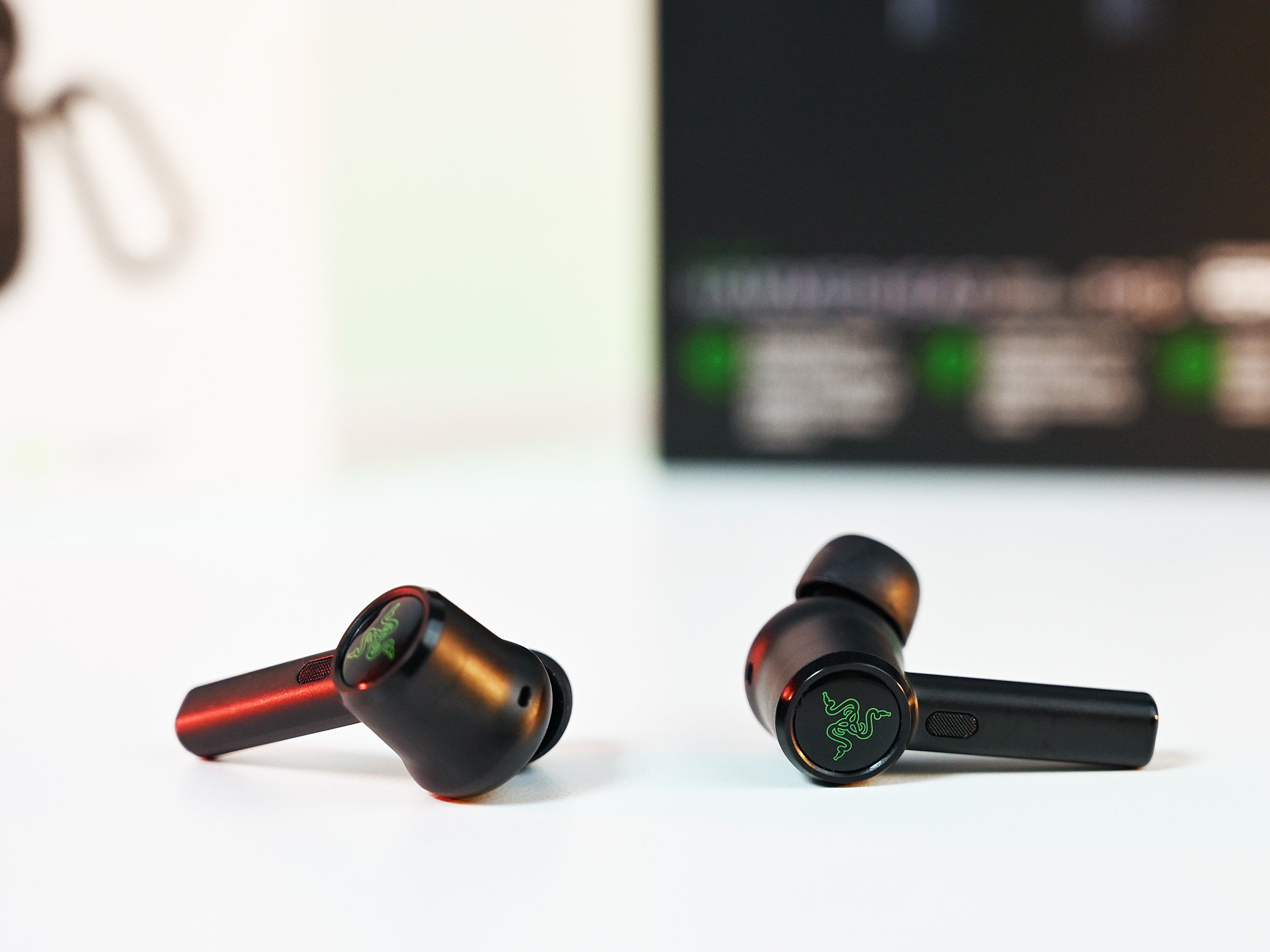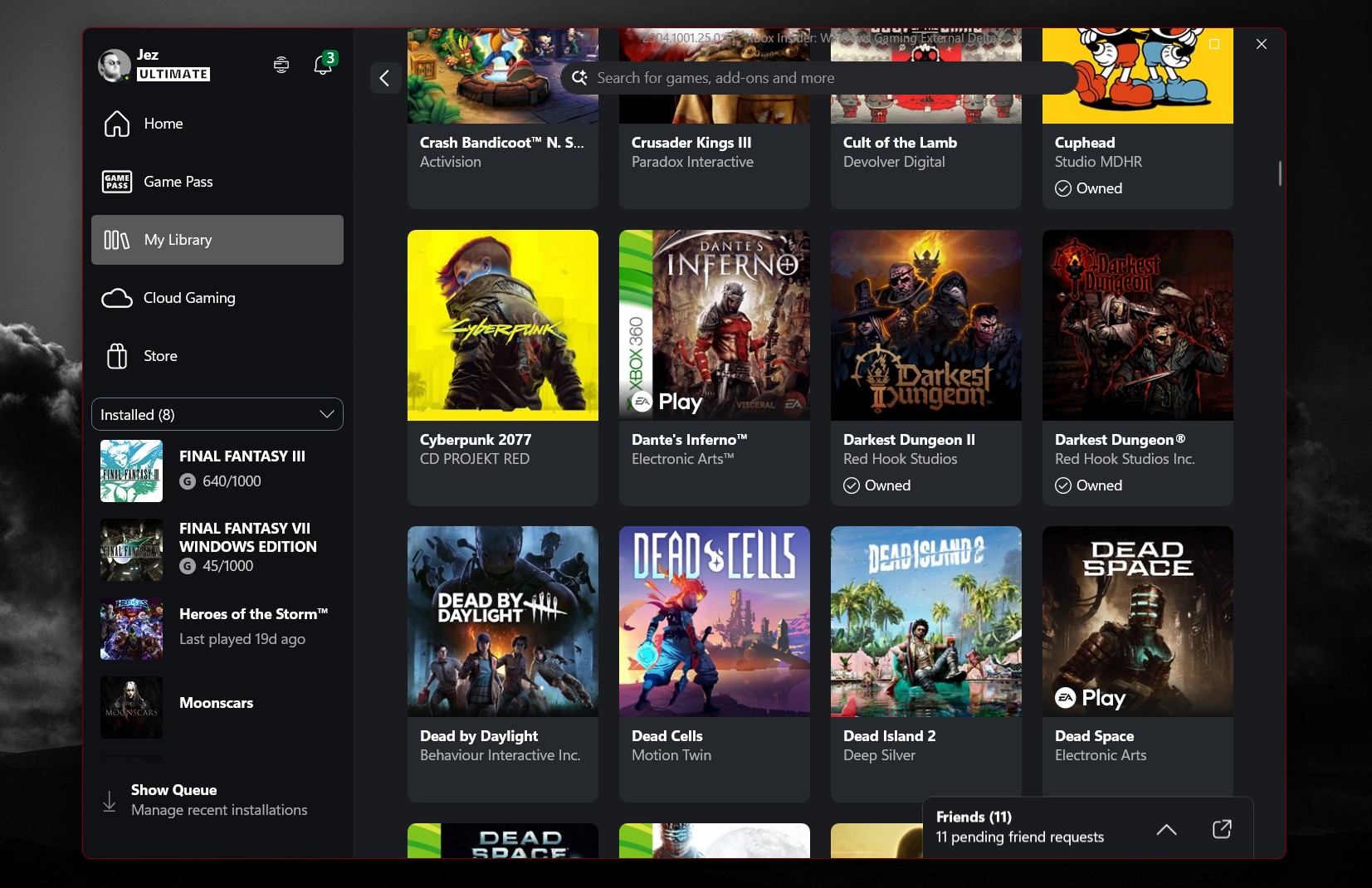One of the more exciting advancements in the last few years has been the proliferation of wireless earbuds. Whether it is Samsung, Apple, Microsoft, or the dozens of cheap knockoff brands on Amazon, consumers have loudly spoken that they want quality headphones small enough to fit in your pocket.
Razer is advancing its Hammerhead True Wireless Earbuds from late 2019 with a new Pro model, which is now available. While doubling the price to $200, the powerful earbuds bring highly coveted features such as THX certification and active noise cancellation (ANC). Toss in IPX4 water resistance, a newly designed carrying case, Razer's famous 60ms latency for mobile gaming, and you have some very compelling earbuds.
I've spent the last week with the Razer Hammerhead True Wireless Pros, and here is what you need to know and whether you should buy them or not.
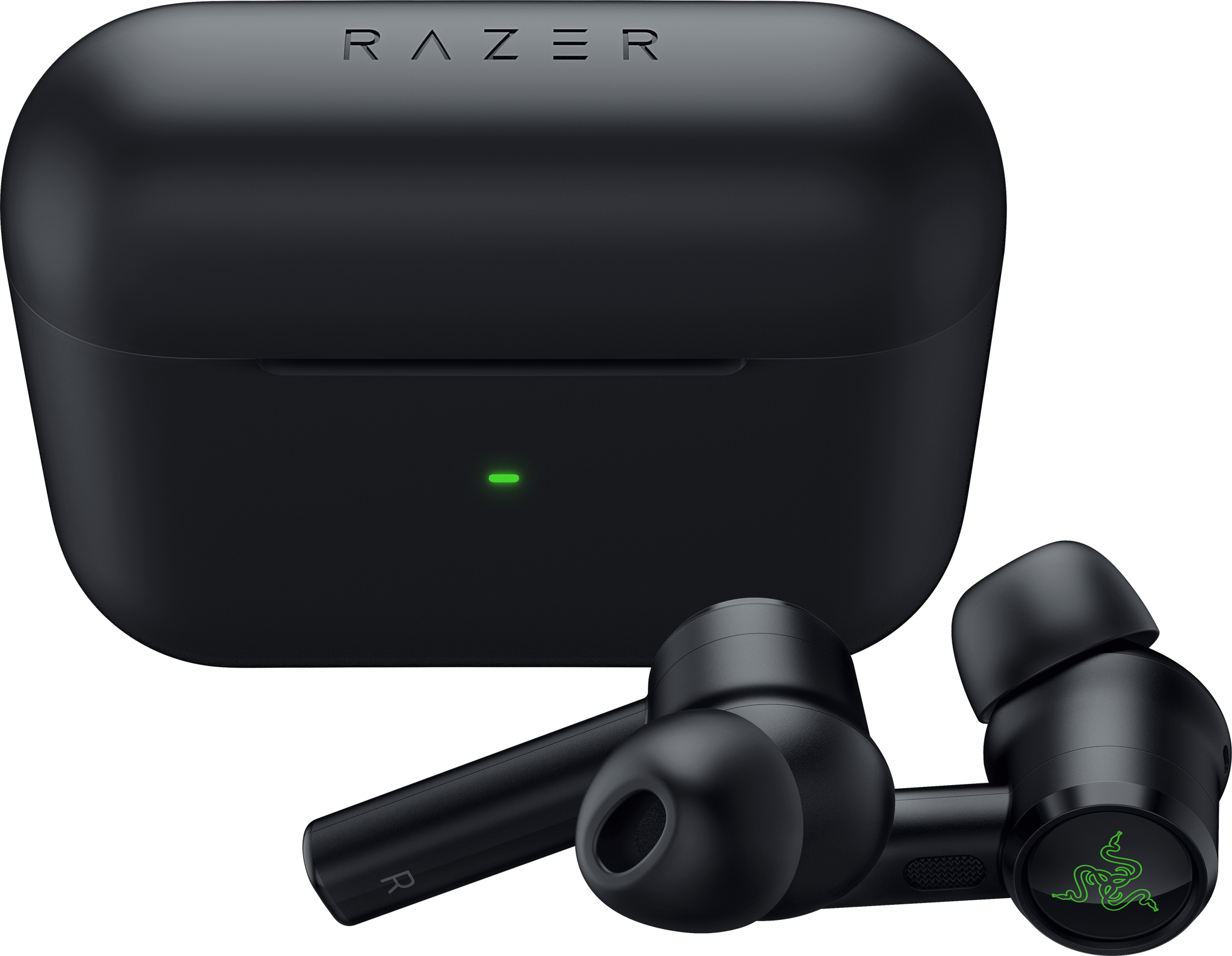
Bottom line: Razer brings highly coveted features to its premium wireless earbuds. With ANC, THX certification, customizable EQ, and excellent comfort, these earbuds offer a lot. What makes these different is the focus on mobile gaming with ultra-low audio latency. Just be careful of the battery hit.
For
- ANC and THX certification deliver excellent audio quality
- Extremely comfortable to wear
- Nice charging case
- Good assortment of features
Against
- Battery life is not amazing
- Gaming Mode is niche
- Tiny touch areas
Comfy and brilliant audio
Razer Hammerhead True Wireless Pro: What I like
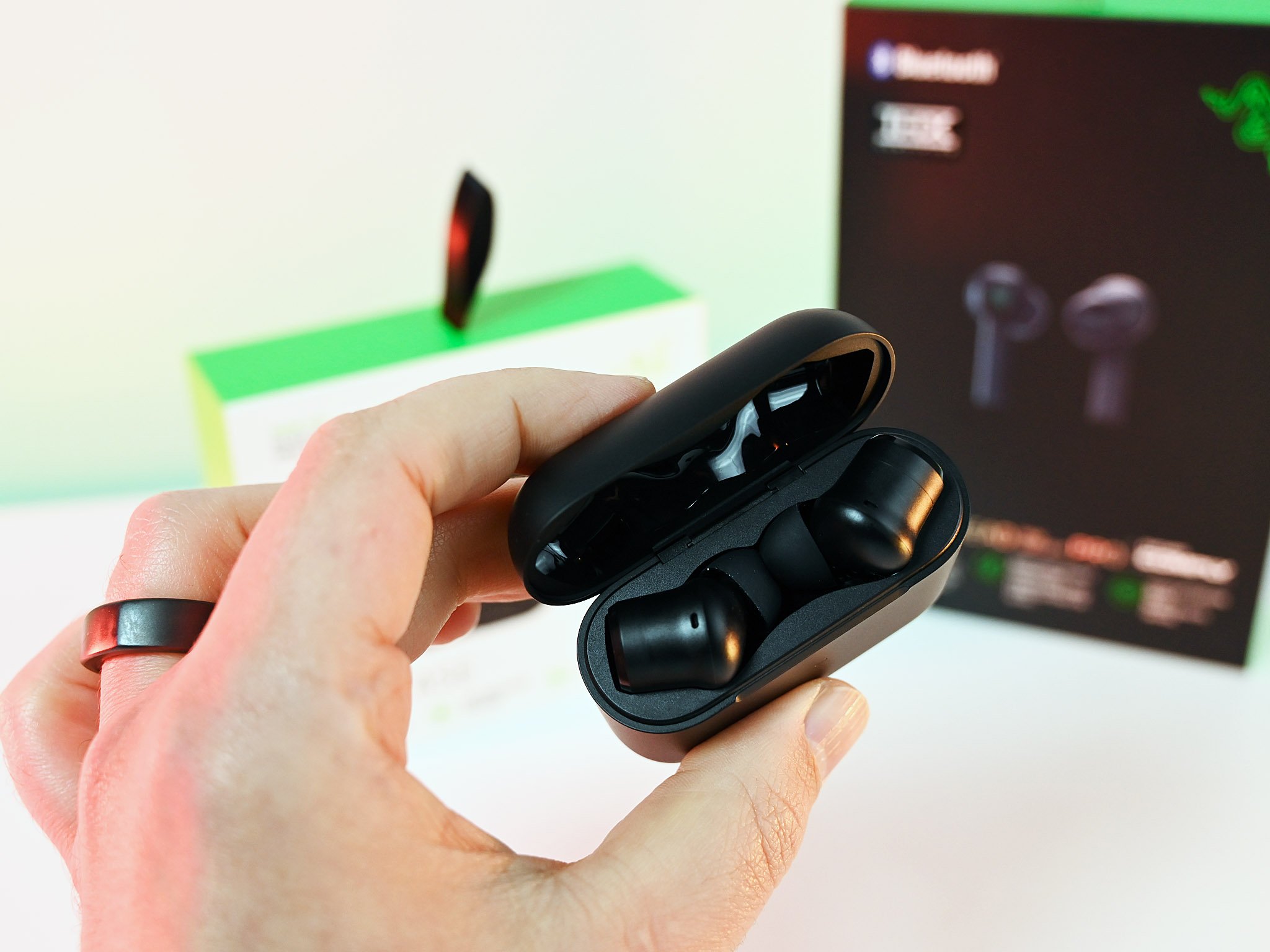
The Hammerhead True Wireless Pro design is a familiar one with an all-black earbud and a stalk that hangs to add balance, grip, battery, and microphones.
The exterior features Razer's standard three-headed snake (THS) logo that also acts as a touch-sensitive control. Tap to play and pause, double-tap to skip forward, hold to toggle ANC, etc. All those settings are user-configurable with the Hammerhead app for iOS and Android.
Being "Pro" headphones, Razer incorporates plenty of replaceable ear tips. There are both SmoothComfort silicone for maximizing comfort and SecureSeal, which are better suited for running or exercise due to them being tackier. Razer also includes Comply "premium foam tips," which mold to your inner ear canal. In total, you get seven pairs of ear tips in all different sizes. While the Comply is the most comfortable because they are memory foam, they wear out over months, meaning you need to replace them to get the same passive-noise canceling effect.
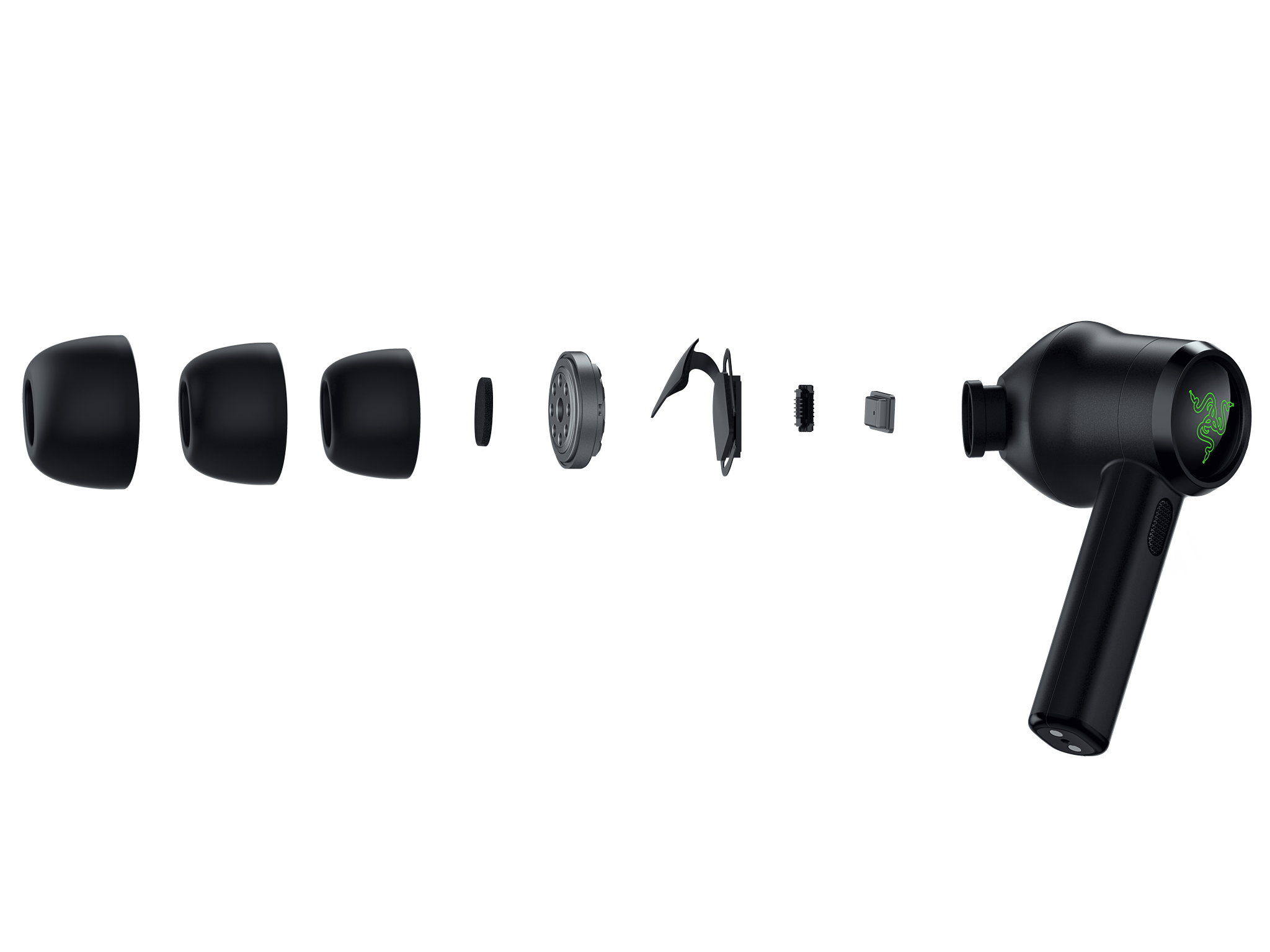
This year's case is also very Apple-like, which is a good thing. The size makes the case more conducive for your pockets (including the change pocket) and easier to handle. A simple flip lid snaps into place; a green LED on the front lets you know the status and the case sports a Type-C port on the bottom for charging.
Razer is also selling an optional THS Carrying Case for $30. That case slips over the included one adding more protection, the nifty Razer THS logo, and a carabiner to attach to your bag or pants easily. While really nice, this is clearly for the hardcore fans.
- Advanced ANC – Hybrid active noise cancellation with four dedicated ANC mics. Also passive.
- THX Certified – For clear vocals & dialog, no distortion, and great noise isolation
- Crafted for Comfort – In-ear design featuring Comply premium foam tips
- Hammerhead True Wireless Mobile App – Custom EQ settings, remap touch gestures, earbud fit test, and more
- 60ms Low Latency Gaming Mode – More synchronized audiovisual when gaming and watching videos
- Quick Attention Mode – For situational awareness whenever you need it
- Mobile Lifestyle – Up to 20 hours of battery life, IPX4 water resistance, and touch-enabled controls
- Frequency Response – Clear Vocals, Dialog, & Impactful Bass: 20 Hz – 20 kHz
- Codecs: SBC, AAC
- Distortion – No Distortion at High Volumes
- 10mm Drivers
- In-Ear Design: Snugger Fit + More Passive Noise Isolation; 7 Pairs of Tips including Comply Premium Foam + 2 Types of Silicone
THX Certification is also impressive. Although Razer now owns THX, the company operates independently from Razer, meaning these earbuds had to pass the rigid tests laid out by THX to meet its high standards. I've also reviewed the Razer Opus earlier this year – Razer's first THX Certified headphones (over the ear), and they're still one of my favorites.
Razer explained what those guidelines are:
- Frequency Response: Headphones are tested to ensure a well-balanced frequency response with minimal channel imbalance.
- Distortion vs. Output: The best sound comes from sufficient sensitivity to achieve a premium level of audio output while maintaining minimal distortion at the required sound pressure level.
- Isolation: The design of the headphone's ear cushions, headband clamping force, or ear tips are evaluated to ensure a good seal such that unwanted external noise is minimized.
The Razer Hammerhead True Wireless Pro sound great, look great, and are super comfortable for hours of wear.
The app features equalizer (EQ) presets, including THX (balanced), Amplified (increased low-mids), Vocal, Enhanced Bass (increased low frequencies), and Enhanced Clarity (emphasizes mid-highs). Razer also lets you now modify the ten-band EQ to your liking.
But what makes the app more fun is the ability to test for ANC. While wearing the earbuds, the app will play audio and, through the built-in mics, detect any sound leakage. Indeed, my right earbud was slightly looser than the left, which showed up in the test. The app recommends I try a different size, which fixed the issue. There's also a "quick connect" feature that lets you jump between paired devices with ease.
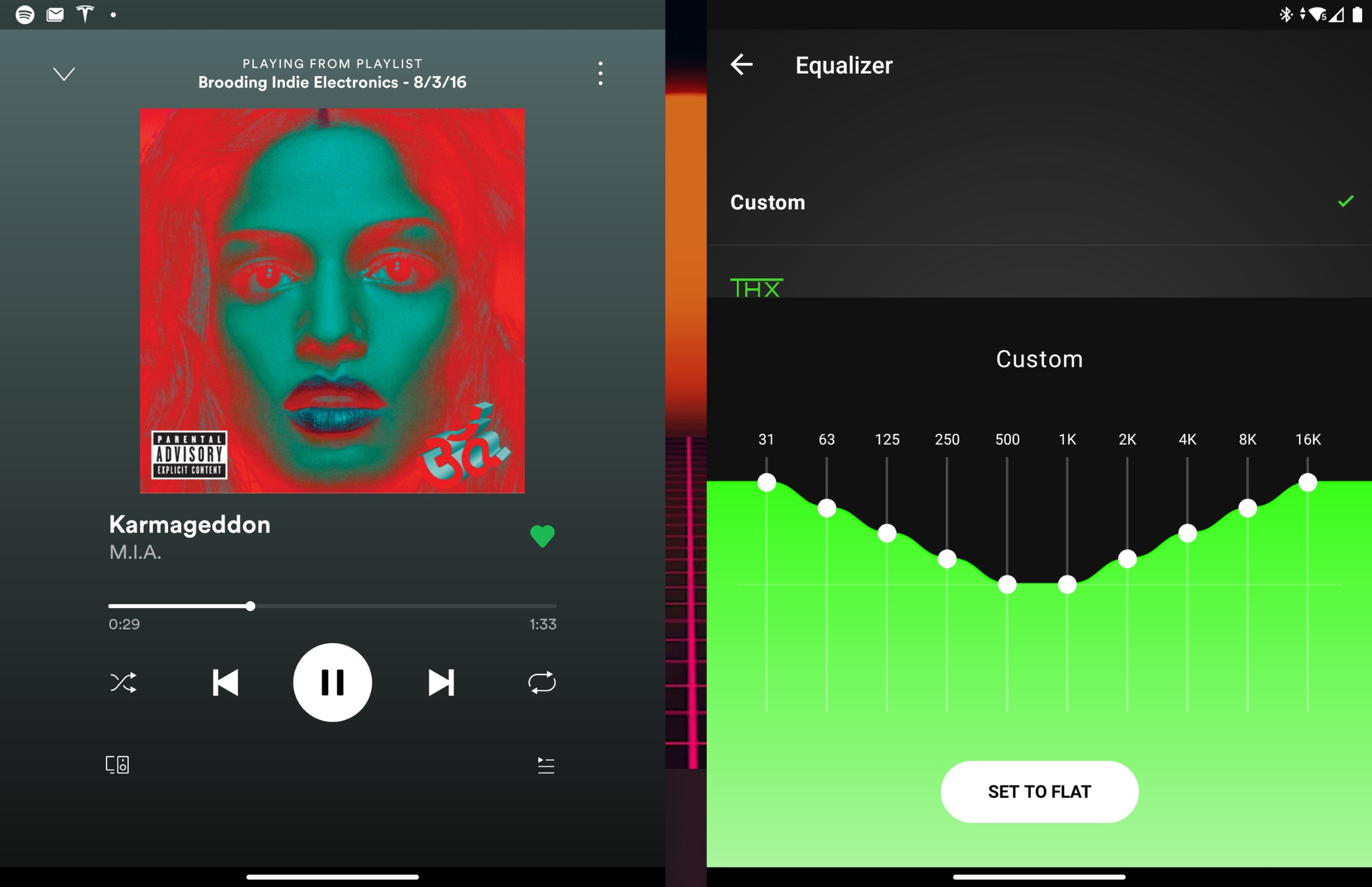
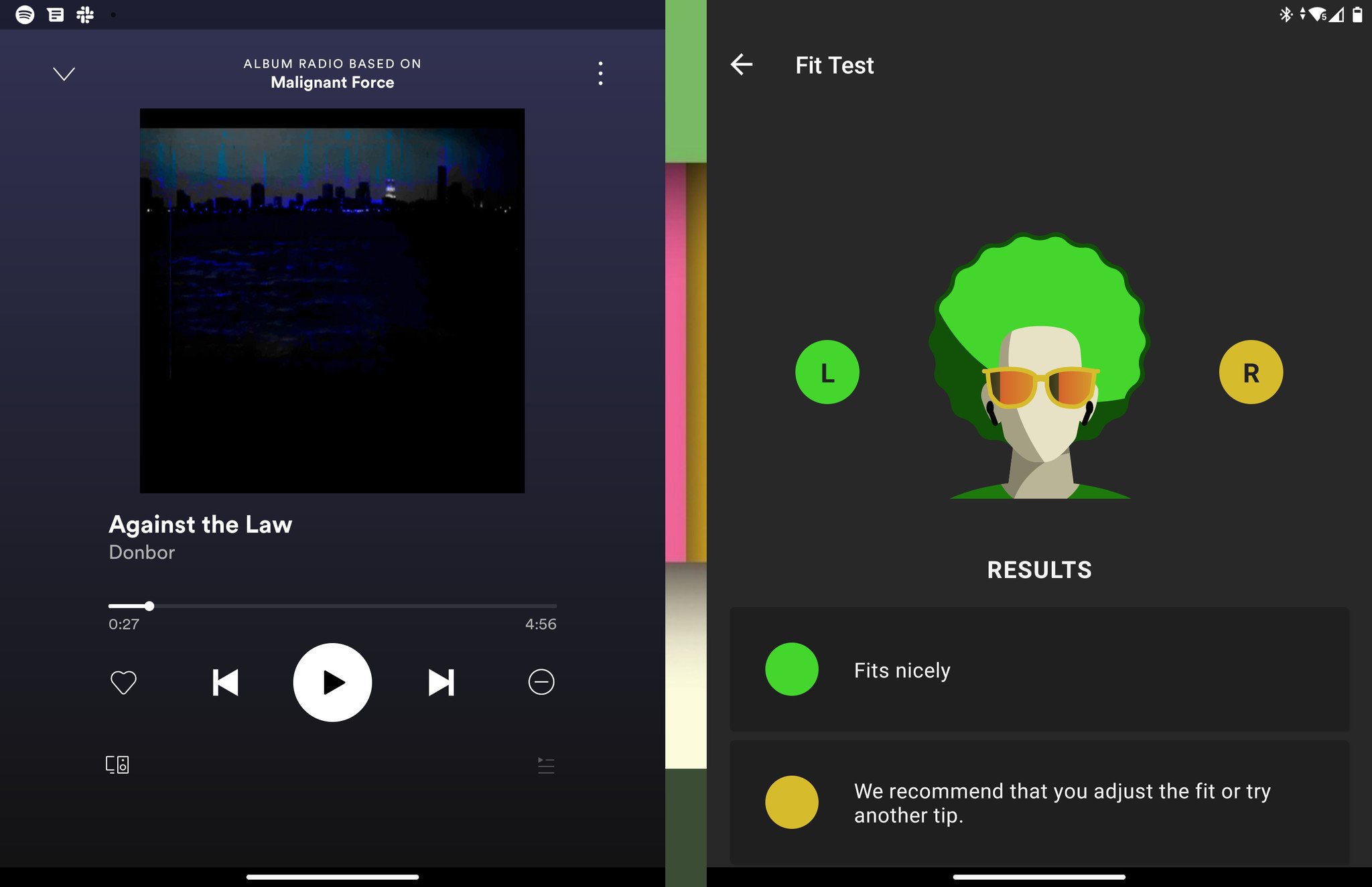
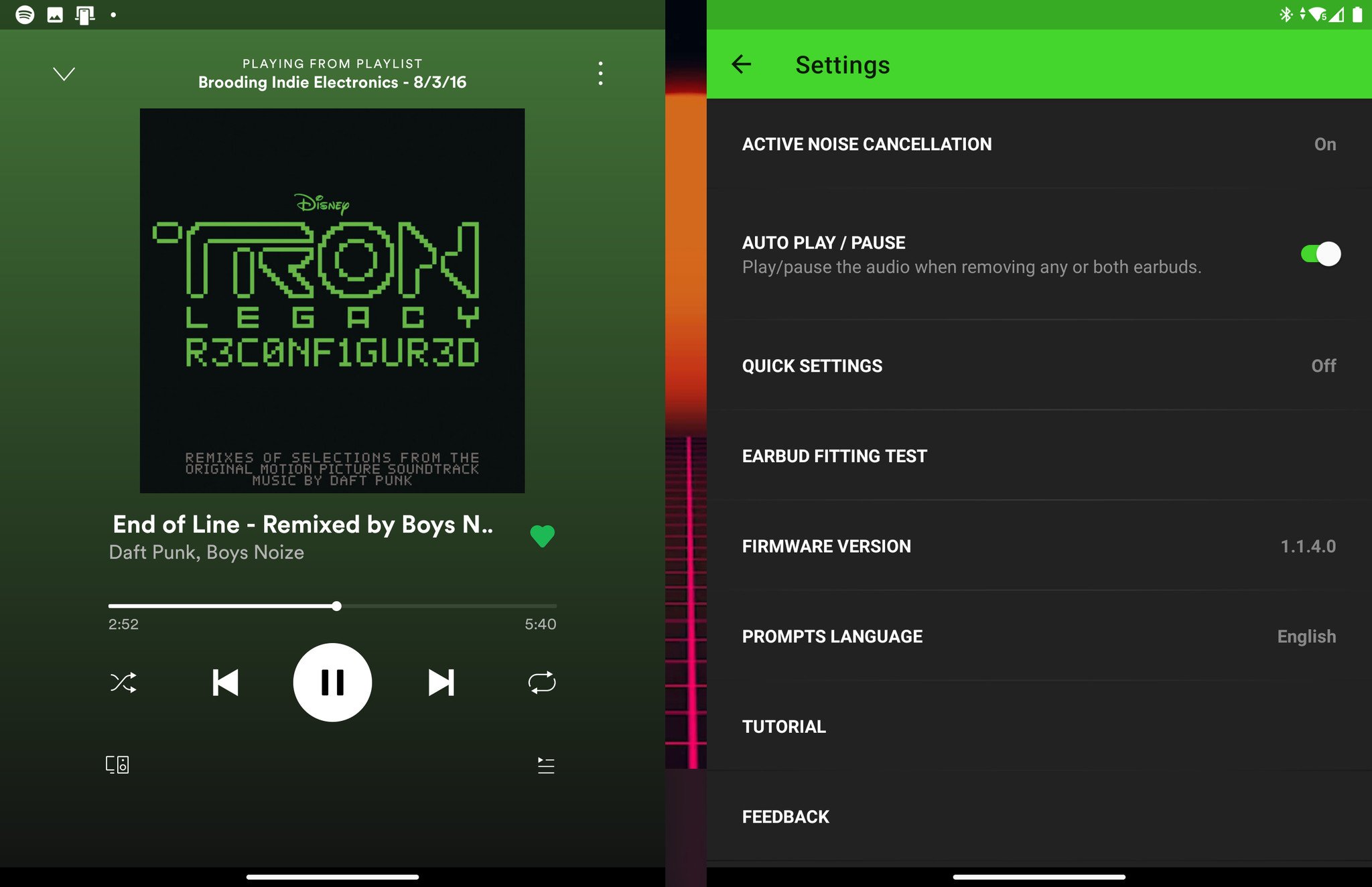
The real mojo for these earbuds comes from the Gaming Mode. While off by default, this setting enables 60ms ultra-low latency streaming. It is nearing the latency of wired headphones, and the idea here is when you play serious mobile gaming that relies on speed, low-latency, and reflexes, the audio should match what you are experiencing. Razer notes that technically any Bluetooth headset can do this, but manufacturers do not enable it as it hits battery life hard. Razer, at least, gives you that option.
Overall, the audio is outstanding. While the THX preset is excellent, I preferred to use the traditional mid-scooped EQ (U-shaped) with higher lows and highs and flatter mids.
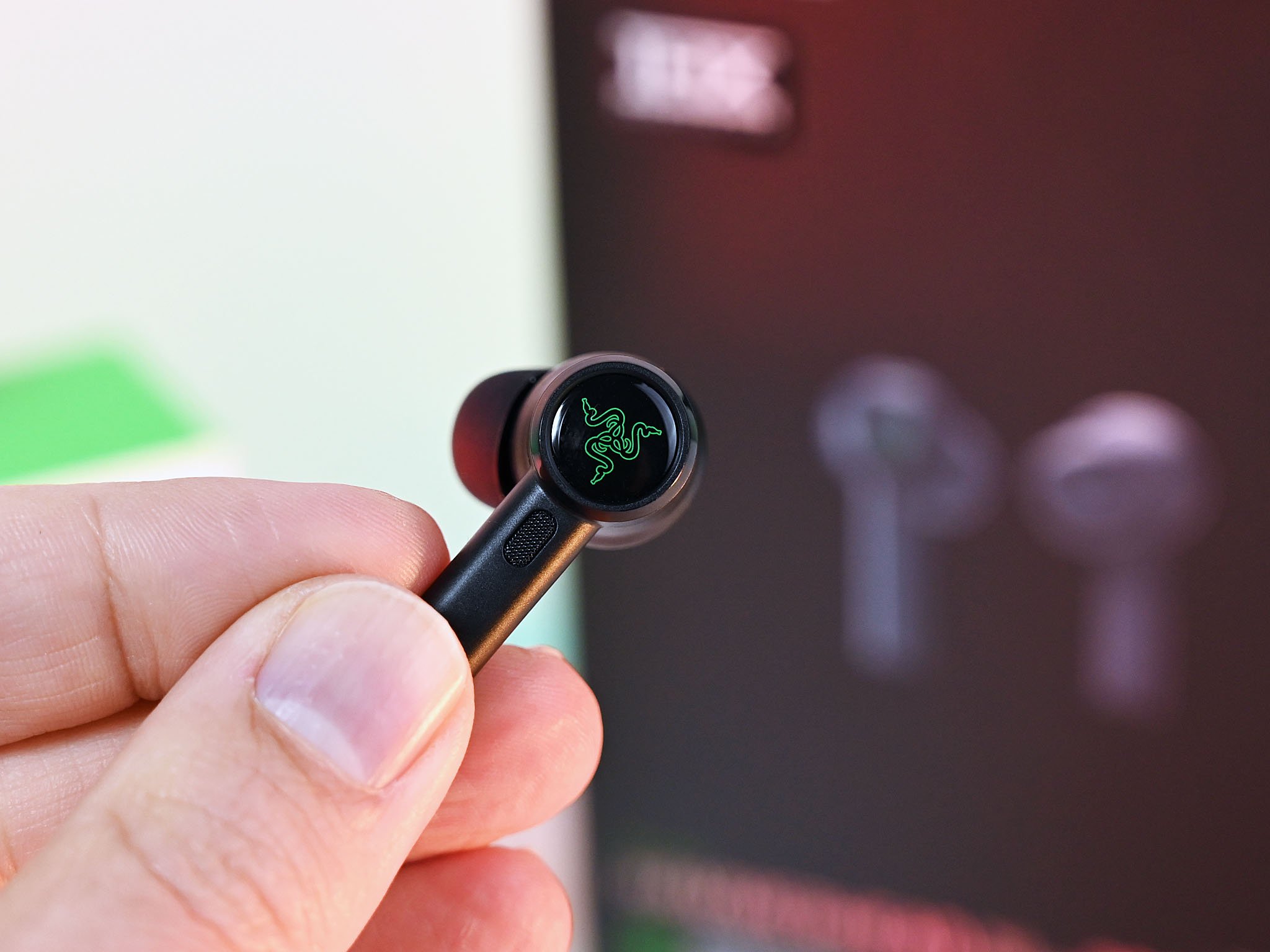
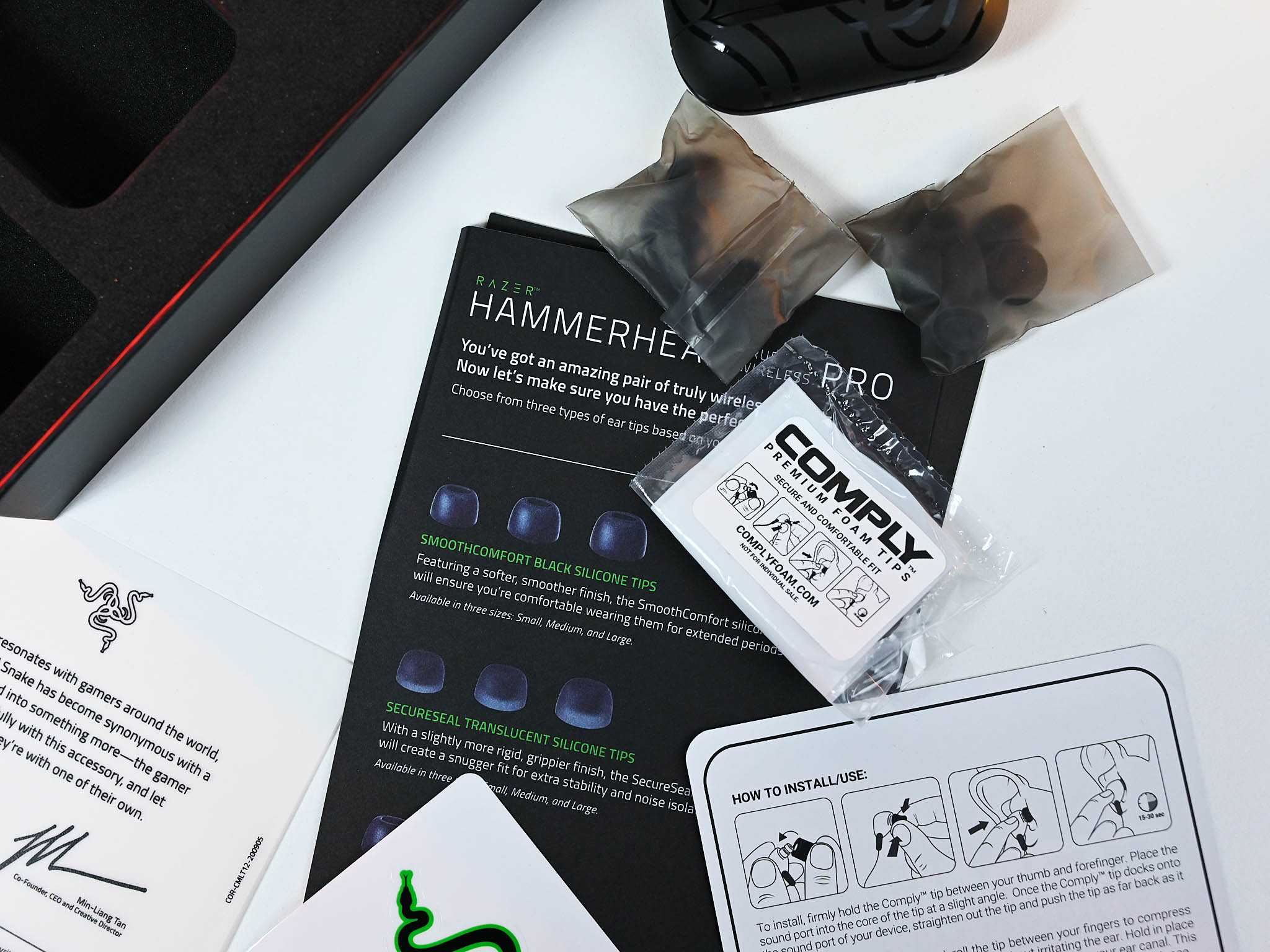
ANC also works very well, blocking out most background noise with a consistent pattern, e.g., such as engine noise or crowds of people. While not as good as over-the-ear designs, the ANC was highly enjoyable when paired with adequately fitted ear tips. Because ANC can use more battery life, users can disable it or even enable an "ambient" mode to amplify external sound if you wanted to talk to someone without removing the earbuds.
As expected with premium earbuds, the Hammerheads also pause, play, and toggle power based on whether you are wearing them or not.
Battery life is OK
Razer Hammerhead True Wireless Pro: What I don't like
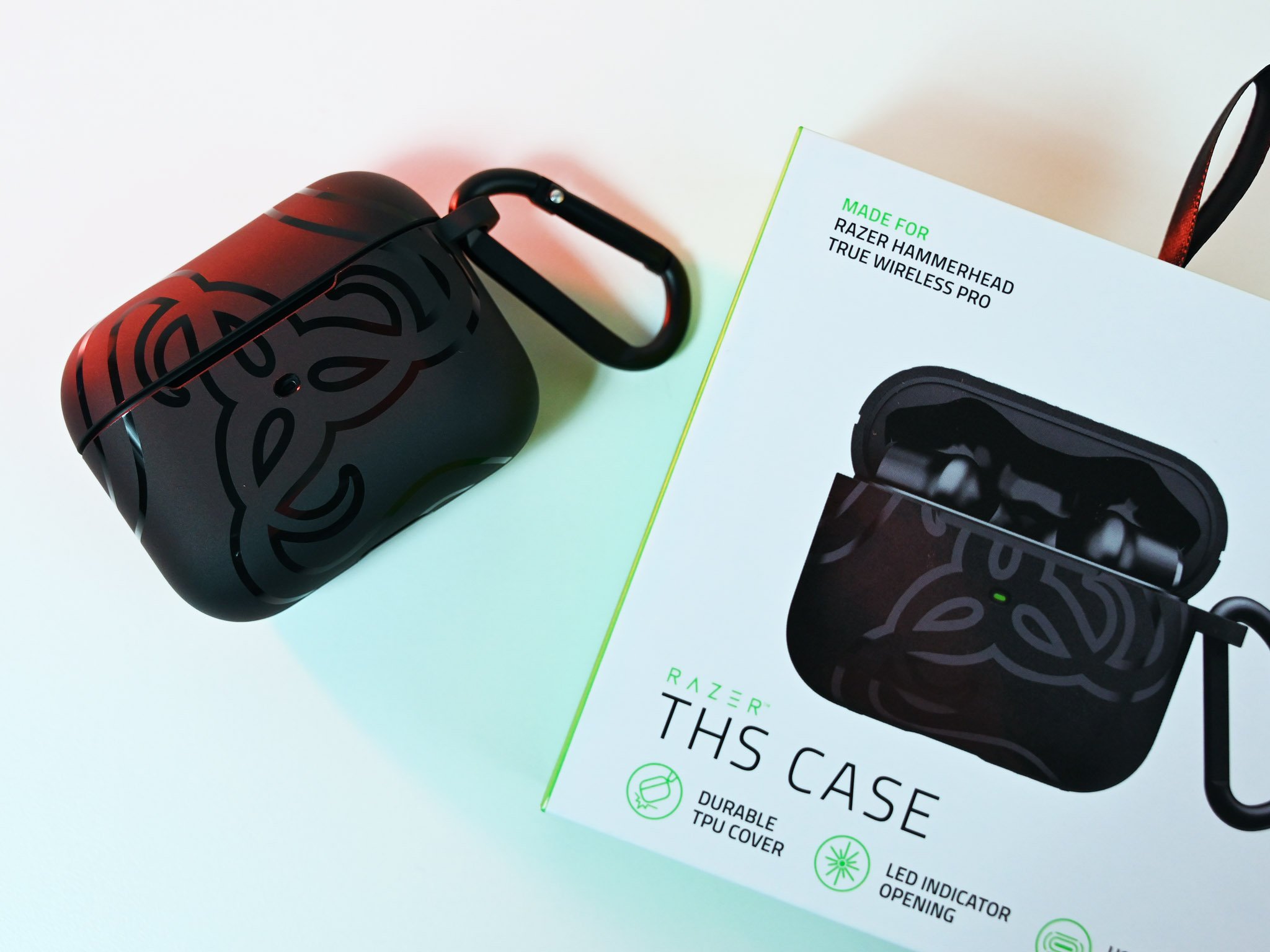
Razer isn't shy that the battery life on the Hammerhead True Wireless Pros isn't groundbreaking. Part of that is by design like that 60ms low-latency mode. That's the tradeoff for mobile gamers, and it's the right choice for a company like Razer to make.
If using regular latency, which still had no lag when watching videos, and combined with ANC enabled, you're looking at roughly four hours of battery life depending on volume settings. The case can recharge the Hammerheads another four times, which is where Razer gets the approximately 20-hour estimate. Like other wireless earbuds, the right one drains slightly faster than the left due to it acting as the master.
These are the best mobile gaming earbuds on the market.
Speaking of low latency, I did have a tough time always noticing a difference between Gaming Mode and not having that feature enabled. Your mileage may vary on how beneficial it is. Similar arguments can be made about 120 frames-per-second and return in value for 144Hz or higher displays. Basically, diminishing returns.
The $30 THS case is highway robbery. While purely optional and not required, that seems like a straight money grab.
Pulling the earbuds out of the case is … not satisfying. It's a bit hard to get a grip on the earbuds to yank them out.
There's no direct support for any smart assistant features like Alexa, Google, or Siri, although using "Hey, Google" works just fine on Android.
Finally, the touch controls are OK. I think Razer did a fantastic job considering how small the touch target is, and it does work. But it does take some time to get used to too.
The competition

Many wireless earbuds are competing against these, but few focus as much on gaming.
The Sony WF-1000XM3 retail at over $200, but often can be found for $160. Sony knows audio and ANC, making up for features and overall quality while they lack ultra-low latency.
Apple's AirPods Pro are also extremely popular so long as you are OK with them being white and don't mind the $220 privilege (also, they're less fun if you're on Android).
The Sennheiser Momentum Wireless 2 run around $270 but are considered to have the best all-around audio for earbuds.
Microsoft's Surface Earbuds ($200) are also unique, focusing on all-day battery life and comfort. While genuinely nice earbuds, they are a vastly different market than Hammerheads (i.e., productivity versus gaming).
If you want just affordable, go with Aukey EP-N5, which can be found for as little as $45. While nowhere near as good as the Hammerheads or any of the above mentioned, they're still much better than that price reflects (and you won't feel bad if you lose one).
For more ideas, check out Android Central's Best Wireless Earbuds 2020 list for more recommendations.
Razer Hammerhead True Wireless Pro: Should you buy
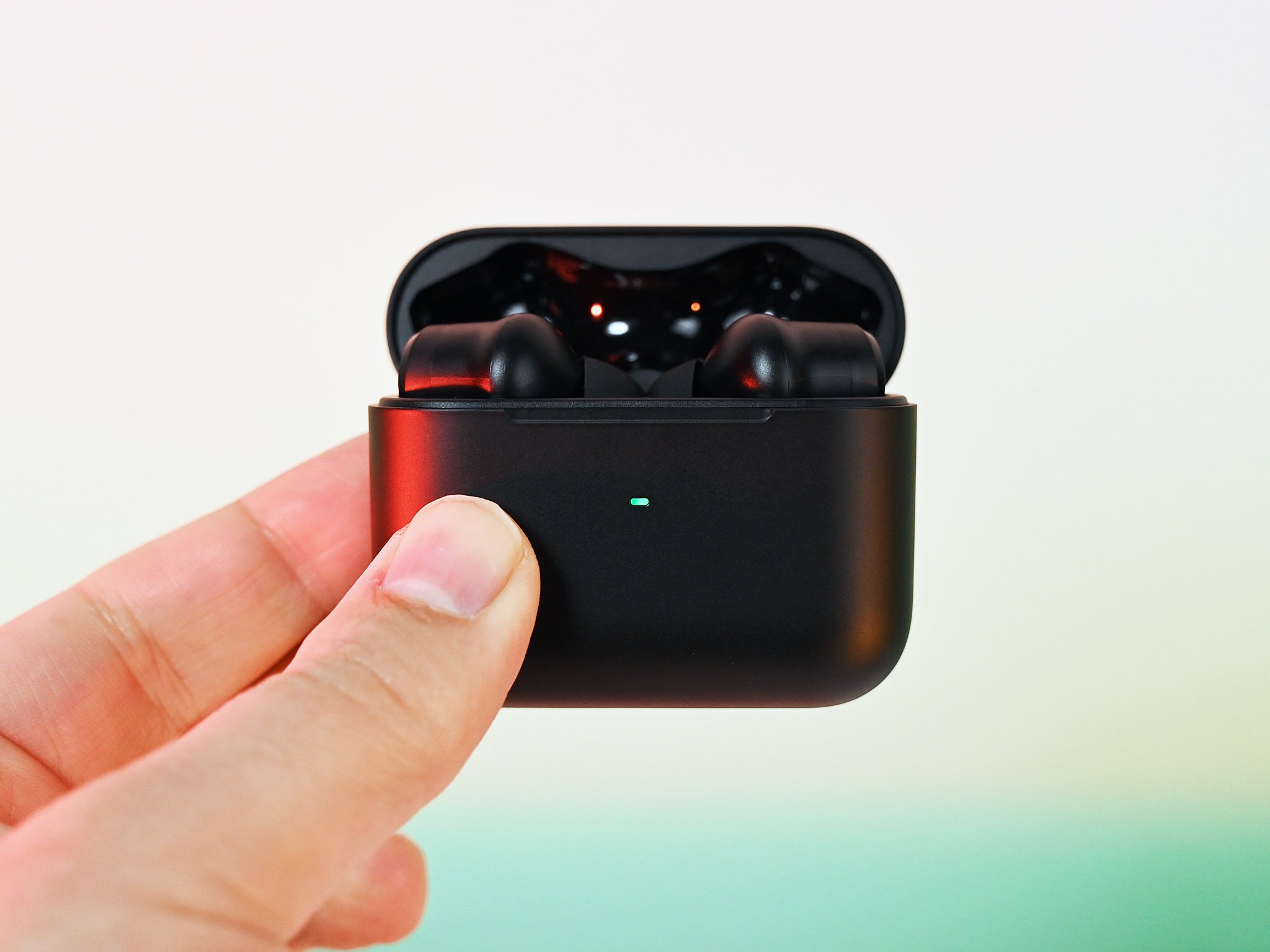
You should buy this if ...
You're into mobile gaming
Razer is a gaming company first and foremost, and these are made with gamers in mind. While they work great even if you do not game, the real value here is that 60ms low latency for first-person shooters on your mobile. If you do not plan to game, you're not fully utilizing these earbuds.
You want THX and ANC
No other earbuds currently rock THX certification, which is not insignificant. When combined with ANC (and passive), these earbuds deliver outstanding sound results in an excellent overall package.
You value comfort
I have sensitive ear canals and generally do not prefer in-ear headphones, but I could wear the Hammerhead Pros for hours without even a hint of discomfort. They are light, stayed in my ears, and were easy to forget I was wearing them. Plus, they're not AirPods.
You should not buy this if ...
You do not need low latency
If you don't game, you're probably off buying Sony's WF-1000XM3 or even more casual Google's Pixel Buds ($180). Even if you only occasionally game, the whole idea of 60ms latency may seem moot if you already cannot perceive the difference.
You don't like the design or logo
These earbuds look a lot like Apple AirPods, but in black. That is not horrible, but some may prefer a unique design. Likewise, you may not like the Razer THS logo, which, while low-key, is still obvious.
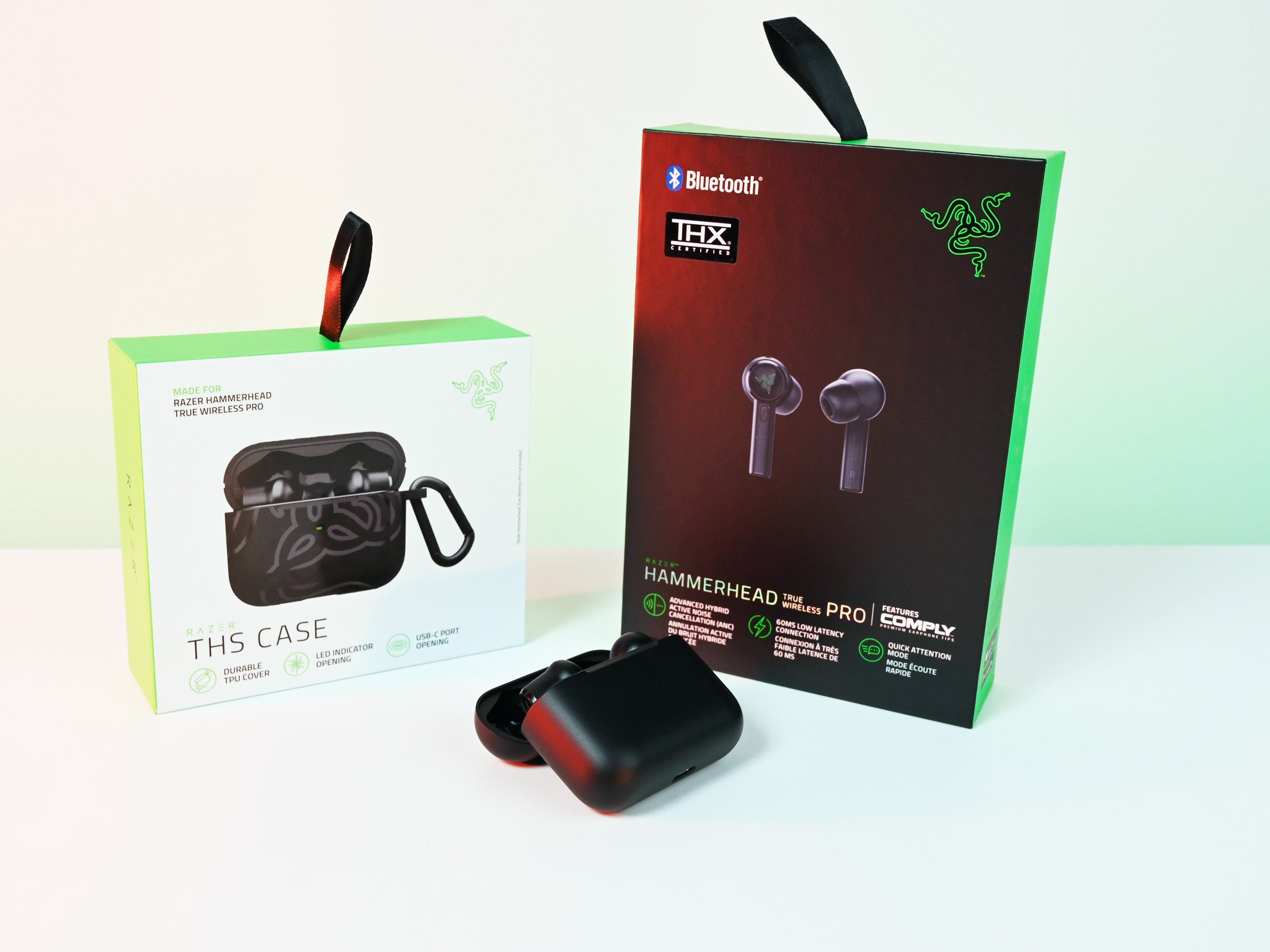
Overall, Razer has done an excellent job with the Hammerhead True Wireless Pro. They pair with ease, sound great, have just the right amount of customization, were comfortable, and look typical, which is not bad.
Whether you get real value out of 60ms latency depends on how hardcore you are for mobile gaming. That makes these Hammerheads a bit niche, but they're still a fine choice even if you don't game.
THX and ANC in some tiny, low-key earbuds are features worth having.
Perhaps the bigger problem is that the ANC earbud market is already packed with excellent options, making these a tough choice. And if you don't need or value THX and ANC but still want that low latency, you can grab the regular Hammerhead True Wireless for around $70, which is a good value.
Finally, as someone who never fell into the earbud-craze (especially while working from home), I was impressed by these Hammerheads. With the small carrying case, ease of wearing them, and the audio quality, I plan to continue to use them if I ever can commute again or walk around the city.

Bottom line: Razer brings highly coveted features to its premium wireless earbuds. With ANC, THX certification, customizable EQ, and excellent comfort, these earbuds offer a lot. What makes these different is the focus on mobile gaming with ultra-low audio latency. Just be careful of the battery hit.

Daniel Rubino is the Editor-in-chief of Windows Central. He is also the head reviewer, podcast co-host, and analyst. He has been covering Microsoft since 2007 when this site was called WMExperts (and later Windows Phone Central). His interests include Windows, laptops, next-gen computing, and wearable tech. He has reviewed laptops for over 10 years and is particularly fond of 2-in-1 convertibles, Arm64 processors, new form factors, and thin-and-light PCs. Before all this tech stuff, he worked on a Ph.D. in linguistics, performed polysomnographs in NYC, and was a motion-picture operator for 17 years.
